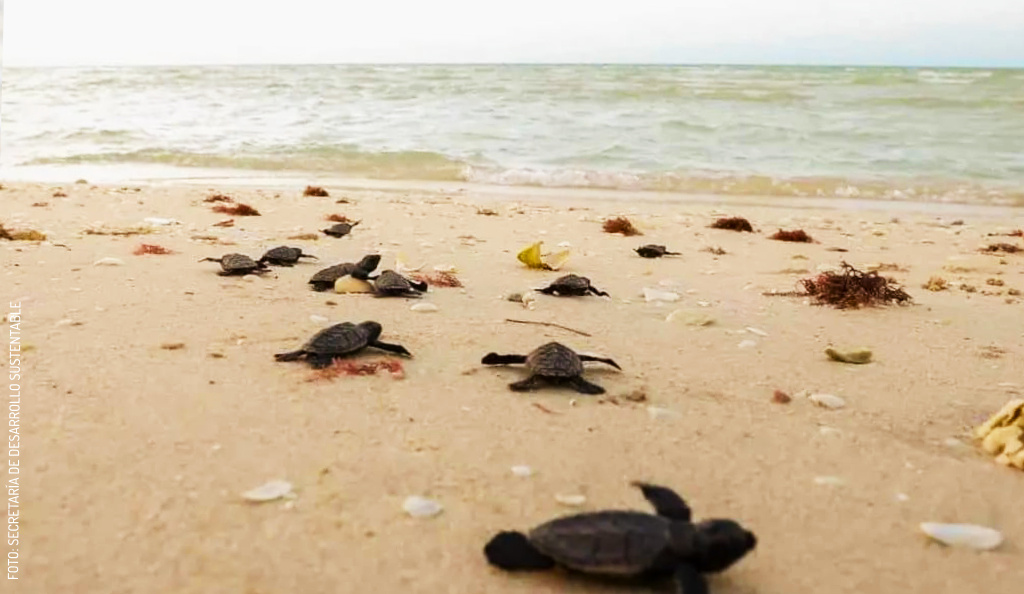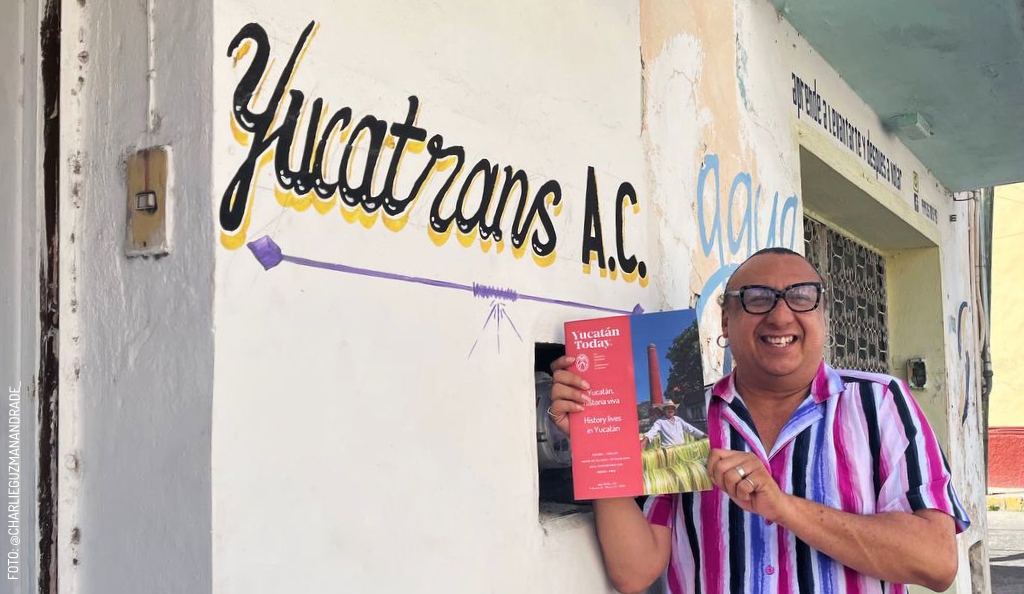
Observing Sea Turtles in Yucatán
Observing Sea Turtles in Yucatán, How to Help the Sea Turtles on Yucatán's Beaches.
Sea turtles play a vital role in marine ecosystems, and safeguarding them is essential for the overall health of oceans. The two most common species of sea turtles that nest along Yucatán’s coast are the Hawksbill Sea Turtle (Tortuga Carey) and the White Sea Turtle (Tortuga Blanca). In addition to being endangered, they face a number of risks. From vehicles to predators, and from contamination to accidental fishing, illegal trade, and climate change, there are many threats impeding their journey from sand to sea. Fortunately, the state of Yucatán has a sea turtle protection and conservation program diligently working to preserve their habitats and populations. There are also ways we all can contribute to help.
Conservation Initiatives in Yucatán
The Department of Sustainable Development (SDS) is the state government agency charged with leading sustainable practices in Yucatán. One of their many initiatives is the preservation of Yucatán’s sea turtles. This endeavor is driven by dedicated volunteers stationed at three locations, each spanning 40-50 km of coast along key nesting grounds for sea turtles: Sisal, Telchac Puerto, and Dzilam de Bravo. These turtle camps play a central role in conservation efforts, allowing authorities to monitor the areas and implement measures to protect sea turtles. Volunteers stationed at these camps have undergone training and obtained permits to carry out tasks such as monitoring turtles, collecting data on nesting females, overseeing and documenting nests, and nighttime patrols to track turtles and relocate threatened nests. The work they do is essential for understanding the status of sea turtle populations and informing conservation strategies.
The turtle camps in Yucatán
.jpg)
The turtle camps in Yucatán offer educational activities aimed at raising awareness about sea turtle conservation. While the more popular turtle release events aren't widely publicized in order to control attendance, families visiting the area can still appreciate the camps' efforts. After marking the days and estimating hatching times, the turtle release events will be scheduled, usually on weekends in July and August. Only trained volunteers are allowed to handle the hatchlings, and prior to release, an expert will give a talk to observers about turtle care, the environment, and related topics.
Children will be surprised to learn that out of a thousand hatchlings released in Sisal, only one may survive to adulthood and return to the very same beach, regardless of thousands of kilometers traveled in the ocean. This experience leaves a lasting impression and fosters an appreciation for nature and wildlife conservation. It's a fantastic way to learn about sea turtles while supporting ongoing conservation efforts.
Families interested in sea turtles and events can stay updated through camp websites such as this one: FB: Campamento Tortuguero Partmacy
How You Can Help the Turtles in Yucatán
Turtle season coincides with the summer vacation months when beach traffic is high. Even if you are being careful not to harm turtles, vehicles passing can compact the sand of nests and block the hatchlings' ability to climb out. Especially from May to August, during the peak nesting and hatching season, avoid using vehicles and horses along the coast.
Let’s help our endangered sea turtles and support those dedicated to protecting them! Any sightings of turtles, nests, or hatchlings should be reported to the turtle hotline at Tel. 999 502 7825.
Together, we can protect these amazing creatures, preserving their vital role within our coastal ecosystems for years to come.
Special thanks to M.G.A. Toshio Yokohama Cobá, SDS Director of Management and Conservation of Natural Resources, and Juan Lara, Founder of Campamento Tortuguero Partmacy, for their contributions to this article. Their expertise and dedication to preserving these creatures and their habitats are deeply appreciated.
Photography by Secretaría de Desarrollo Sustentable, for its use in Yucatán Today.

Author: Monica Starling
Writer, architect and mom, living in the Yucatán since 2007.
In love with Yucatán? Get the best of Yucatán Today delivered to your inbox.
Related articles

The Wildflowers of Yucatán: The Stars of the Day of the Dead
Wildflowers of Yucatán: protagonists on the Janal Pixan altars. Discover the flowers that give color to the Day of the Dead in the region and their...
Sal Sol, La Sal del Mar: A Star Ingredient in Yucatán’s Flavors
Sal Sol, the Salt of the Yucatán Sea. Essential ingredient of Mexican gastronomy and mixology. Flavor, tradition, and purity from Las Coloradas.



.jpg)

